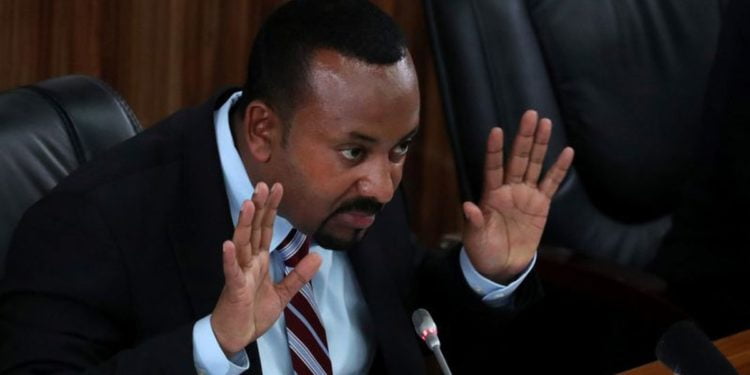[ad_1]
Ethiopia parliament handed a legislation on Thursday imposing jail phrases for individuals whose web posts stir unrest, a transfer the federal government says is required to forestall violence forward of elections however which the United Nations says will stifle free speech.
Ethiopia, for many years one of the vital tightly managed states in Africa, has undergone big political change since reformist Prime Minister Abiy Ahmed took workplace two years in the past.
However at the same time as Abiy has freed political prisoners and journalists and lifted a ban on opposition events, the authorities have struggled to include a surge in ethnic violence. An election this 12 months is seen as the most important take a look at but of whether or not his bold political reforms can stick.
The brand new legislation permits fines of as much as 100,000 Ethiopian birr ($three,000) and imprisonment for as much as 5 years for anybody who shares or creates social media posts which might be deemed to lead to violence or disturbance of public order.
Some 297 lawmakers who have been current within the chamber voted in favor of the invoice whereas simply 23 have been opposed.
“Ethiopia has grow to be a sufferer of disinformation,” lawmaker Abebe Godebo mentioned. “The nation is a land of variety and this invoice will assist to stability these diversities.”
A number of of the lawmakers who opposed the invoice mentioned it violates a constitutional assure of free speech.
Abiy, who received the Nobel Peace Prize final 12 months for his reconciliation with Ethiopia’s neighbor and longtime foe Eritrea, has pledged that this 12 months’s election shall be free and truthful. The nation of 108 million individuals has often held elections since 1995, however just one, in 2005, was aggressive.
The legislation was first endorsed by Abiy’s cupboard in November. On the time, the U.N.’s particular rapporteur on freedom of expression urged authorities to rethink it, warning it could worsen already excessive ethnic tensions and probably gas additional violence.
Worldwide rights teams say it creates a authorized means for the federal government to muzzle opponents.
“Politicians or activists or others shall be pressured to be cautious, afraid that their speech may fall into the definition of hate speech or may be thought-about as false info,” mentioned Amnesty Worldwide’s Ethiopia researcher Fisseha Tekle.
(Reporting by Dawit Endeshaw; Enhancing by Giulia Paravicini, Maggie Fick and Peter Graff)
[ad_2]









